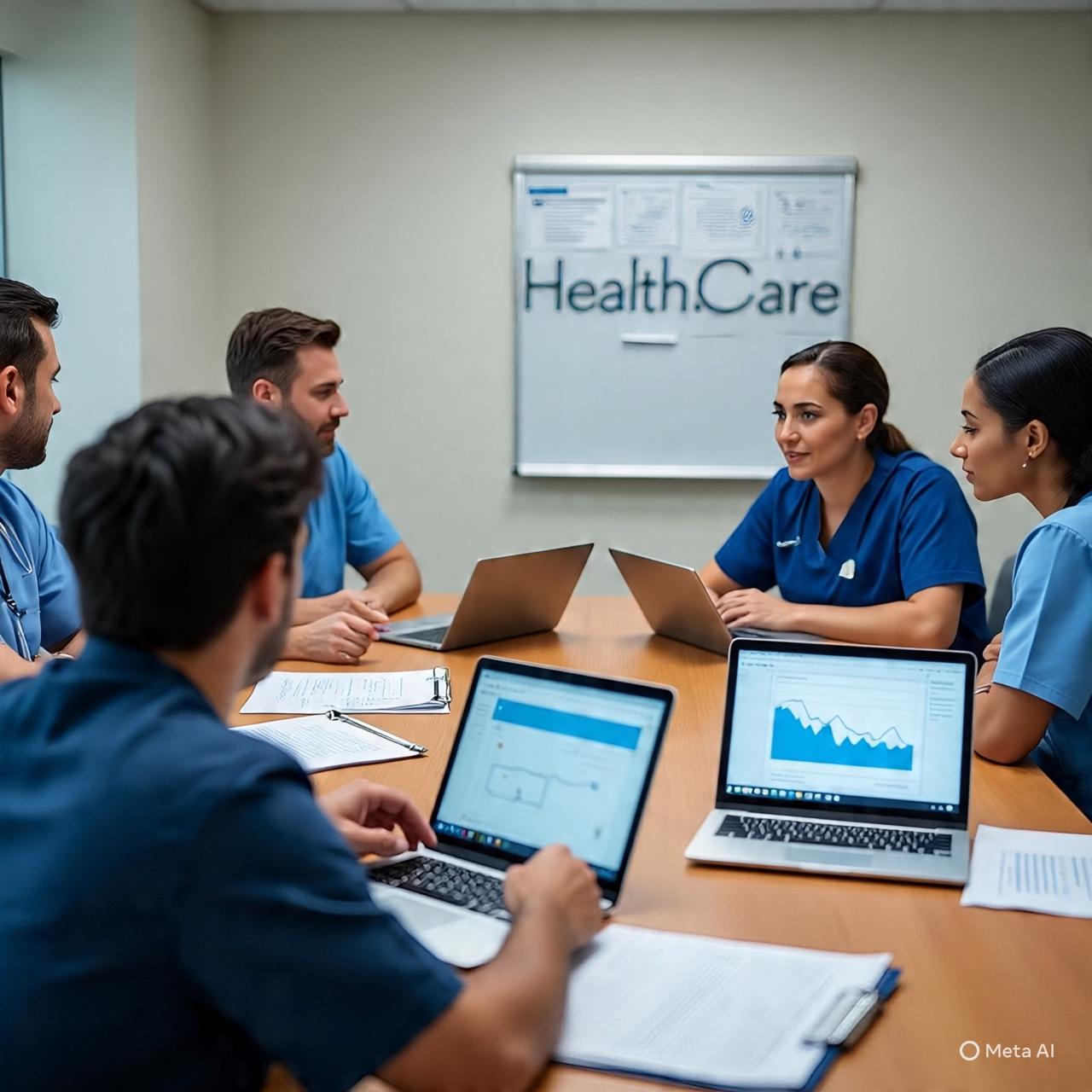Revolutionizing Patient Care with Advanced Healthcare App Development

Healthcare is evolving fast. What once took hours in a hospital queue now happens in minutes on a smartphone. From remote consultations to AI-powered diagnostics, advanced healthcare app development is changing how patients receive care, how doctors manage data, and how hospitals operate.
Let’s look at how this transformation is happening — and what it means for patients, providers, and the future of medicine.
The Digital Shift in Patient Care
Ten years ago, mobile health apps were mostly step counters and calorie trackers. Today, they’re fully connected ecosystems — scheduling appointments, reading lab results, connecting with wearable devices, even detecting early signs of illness.
That leap comes from how healthcare app development companies blend innovation with compliance, building apps that meet clinical standards while feeling as simple as any social platform.
This shift has made care more accessible, especially for people in remote areas or with chronic conditions who can’t visit clinics regularly.
In short: mobile technology isn’t just supporting healthcare anymore — it’s driving it.
What Makes Healthcare Apps “Advanced”
The word advanced isn’t just about flashy features. It’s about intelligence, personalization, and trust.
-
AI and Predictive Analytics
AI helps healthcare apps do more than display numbers. It interprets them. It can flag abnormal readings, predict health risks, and even suggest early interventions. -
Telemedicine Integration
Virtual consultations are no longer optional — they’re expected. With high-quality video, prescription management, and digital records, telemedicine apps are making healthcare borderless. -
IoT and Wearable Connectivity
Devices like glucose monitors, smartwatches, and ECG patches connect directly to mobile apps. This lets doctors monitor patients continuously, not just during appointments. -
Data Security and Compliance
Advanced healthcare mobile app development isn’t only about innovation — it’s about responsibility. Encryption, HIPAA compliance, and secure APIs are essential for protecting sensitive medical data. -
Interoperability
Healthcare systems use multiple software tools. Advanced apps integrate seamlessly with EHRs, hospital databases, and insurance systems to create one unified view of patient health.
The Real Impact on Patients
Technology matters, but what truly counts is how it changes the patient experience.
Here’s how healthcare application development is revolutionizing care:
-
Accessibility: Patients in rural or underserved areas can connect to top doctors without traveling.
-
Engagement: Personalized notifications, reminders, and AI-guided health plans keep patients involved in their care.
-
Prevention: Predictive algorithms help catch problems before they become emergencies.
-
Transparency: Patients can see their records, track progress, and communicate directly with providers.
For patients, this shift means more control, better outcomes, and less waiting. For providers, it means efficiency and data-driven insights.
The Role of Web3 and Blockchain
Here’s where things get futuristic. Web3 healthcare app development is introducing blockchain-based systems that make patient data transparent, secure, and fully owned by the user.
Instead of hospitals controlling records, data becomes decentralized — meaning patients decide who sees what. Smart contracts allow for secure sharing between doctors, labs, and insurance providers without middlemen.
When combined with AI, Web3 unlocks a new era: healthcare that’s not just digital but trust-based and tamper-proof.
Key Challenges and How Developers Solve Them
Every innovation brings new challenges. Even top healthcare app development companies face critical issues:
-
Navigating data privacy laws across regions
-
Ensuring AI algorithms remain unbiased and medically accurate
-
Maintaining real-time performance while handling massive datasets
-
Designing for both tech-savvy and elderly users
The best developers solve these by collaborating with clinicians, conducting usability testing, and adopting agile development practices that keep patient safety central to every feature.
The Business Side: Why Healthcare App Development Is Booming
The healthcare app market is projected to exceed $300 billion by 2030. Hospitals, startups, and pharma companies are investing heavily in custom digital solutions to improve care and reduce costs.
What’s driving this?
-
The global rise of telemedicine
-
The explosion of wearables and IoT devices
-
The shift toward personalized healthcare experiences
-
Government initiatives encouraging electronic health systems
For any organization looking to stay relevant in healthcare, investing in advanced mobile app development isn’t optional — it’s essential.
Building the Future with the Right Partner
Choosing the right healthcare app development company can make or break your vision. Look for a partner who:
-
Understands AI, IoT, and Web3 technologies
-
Prioritizes regulatory compliance (HIPAA, HL7, GDPR)
-
Designs with empathy, not just aesthetics
-
Builds scalable and secure backend architectures
A great app doesn’t just meet functional needs — it enhances human connection in medicine.
Final Thoughts
Advanced healthcare app development is not about replacing doctors. It’s about empowering them — and their patients — with tools that extend care beyond clinic walls. The apps of tomorrow will be proactive, predictive, and deeply personal.
At Alpharive Tech, we’re helping healthcare innovators bring that future closer. Our team specializes in AI-powered healthcare app development, combining technology, data, and empathy to build digital solutions that truly improve lives.
- Art
- Causes
- Crafts
- Dance
- Drinks
- Film
- Fitness
- Food
- Игры
- Gardening
- Health
- Главная
- Literature
- Music
- Networking
- Другое
- Party
- Religion
- Shopping
- Sports
- Theater
- Wellness


